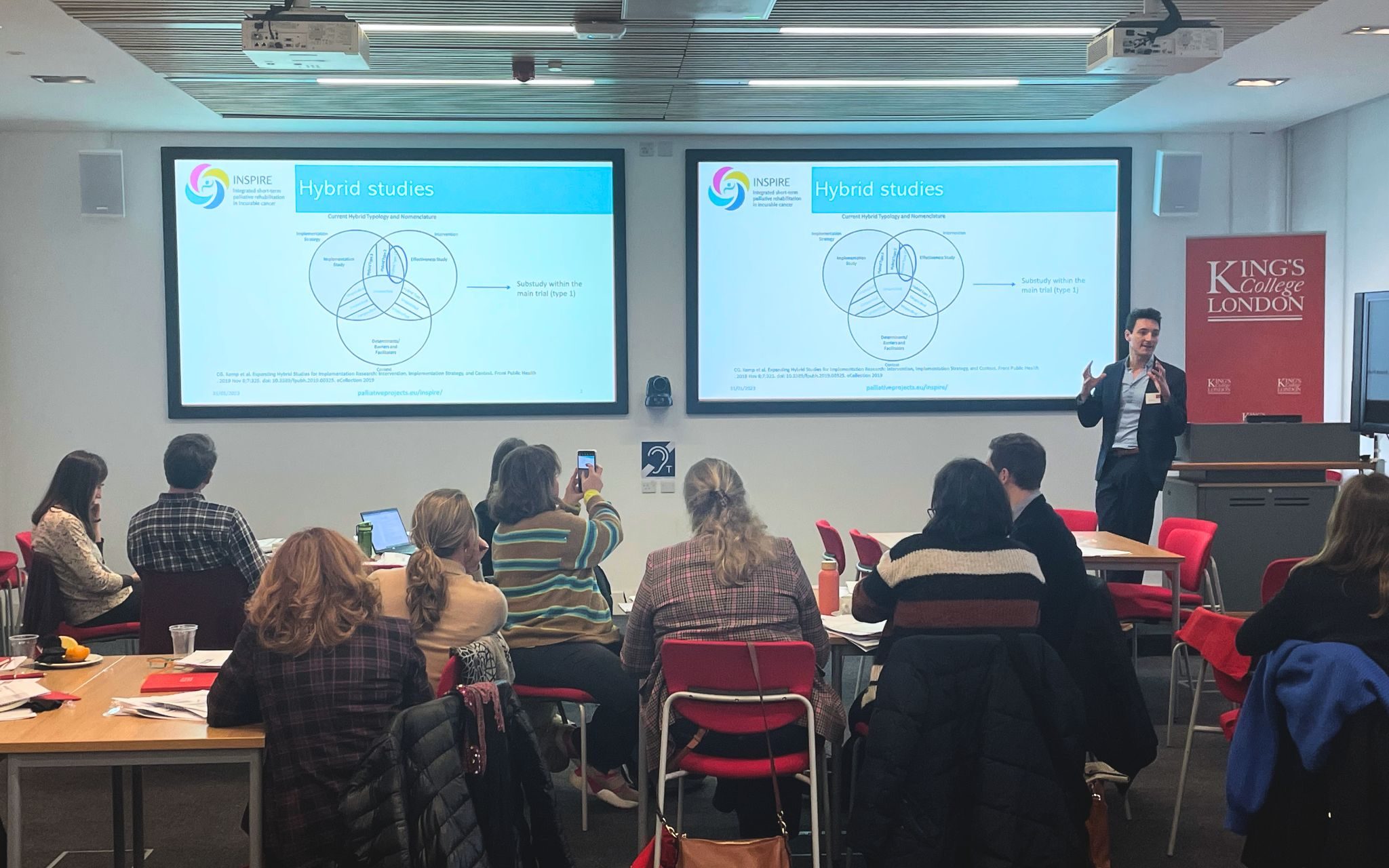
Disability and Cancer:
Individuals with advanced cancer often experience significant disability as a result of disease progression and cancer treatments, subsequently impacting on activities of daily living and quality of life (Fettes et al., 2022; Sleight et al., 2022). Offering palliative care, which incorporates rehabilitation strategies is recommended, but is not readily accessible to all (Murray et al., 2017; Parola et al., 2020).
World Health Organisation Resolution:
In May 2021 the 74th World Health Assembly adopted a landmark resolution aimed at making the health sector more inclusive for people with disabilities. The Resolution highlighted the significant barriers that people with disabilities face whilst accessing health services, including physical, informational, and attitudinal barriers (World Health Organisation [WHO], 2021).
To achieve these goals, the Resolution called for the implementation of:
- The United Nations disability inclusion strategy across all levels of organisation
- The creation of a global research agenda on health and disability
- Capacity-building to support Member States to incorporate a disability-inclusive approach in the health sector
- Completion of a WHO report, which was subsequently published in 2022 entitled “Global report on health equity for persons with disabilities”. Available at: https://www.who.int/publications/i/item/9789240063600
How does INSPIRE fit with the WHO’s Resolution?
The aim of INSPIRE is to evaluate an innovative, integrated rehabilitation intervention for adults living with incurable cancer. In line with the WHO Resolution, the INSPIRE project aims to improve equitability and accessibility of rehabilitation services for patients with incurable cancer and supporting those with cancer-related or pre-existing disabilities. Additionally, the INSPIRE project will work collaboratively with all partners to establish an International Consensus Framework to promote advancements in this field of research.
References:
Fettes, L., Neo, J., Ashford, S., Higginson, I. J., & Maddocks, M. (2020). Trajectories of disability in activities of daily living in advanced cancer or respiratory disease: a systematic review. Disability and Rehabilitation, 44(10), 1790–1801. https://doi.org/10.1080/09638288.2020.1820587
Murray, S. A., Kendall, M., Mitchell, G., Moine, S., Amblàs-Novellas, J., & Boyd, K. (2017). Palliative care from diagnosis to death. BMJ, j878. https://doi.org/10.1136/bmj.j878
Parola, V., Coelho, A., Hugo, F. N., Cardoso, D., Almeida, M. A., Cruz, A., & Apóstolo, J. (2020). Palliative rehabilitation interventions in palliative care: a scoping review protocol. JBI Evidence Synthesis, 18(11), 2349–2356. https://doi.org/10.11124/jbies-20-00024
Sleight, A. G., Gerber, L. H., Marshall, T., Livinski, A. A., Alfano, C. M., Harrington, S., . . . Stout, N. L. (2022). Systematic Review of Functional Outcomes in Cancer Rehabilitation. Archives of Physical Medicine and Rehabilitation, 103(9), 1807–1826. https://doi.org/10.1016/j.apmr.2022.01.142
World Health Organization: WHO. (2021). A new landmark resolution on disability adopted at the 74th World Health Assembly. Retrieved March 1, 2023, from: https://www.who.int/news/item/27-05-2021-a-new-landmark-resolution-on-disability-adopted-at-the-74th-world-health-assembly



